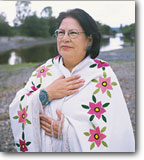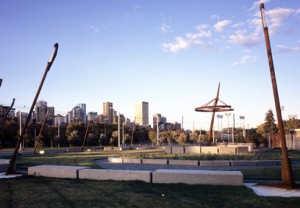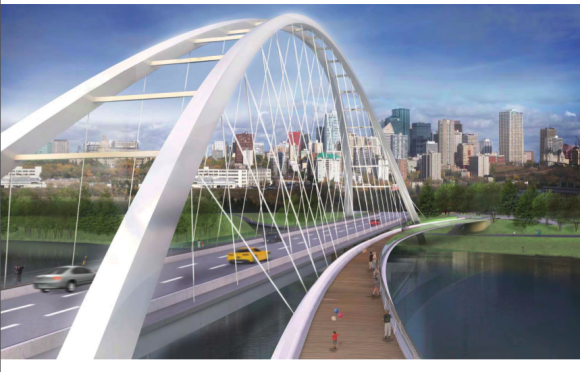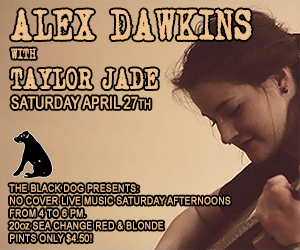GOV’T: Unregistered Alberta burial sites remain unprotected
Posted on January 16, 2013 By Jeremy Loome Front Slider, News, news, Politics
It may shock you to know that if a farmer has an undiscovered native burial site on his land, he can legally plow it under, five years after Alberta promised to protect unincorporated cemeteries.
But the issue isn’t going away. Critics note the upcoming renovation or replacement of the Walterdale Bridge in downtown Edmonton will once again potentially disturb downtown graves of early settlers and aboriginals.
 And the Indian Association of Alberta’s Marilyn Buffalo isn’t happy. She says any historic burial site that falls on private land deserves the government’s attention. “Whether it’s first nations or early settlers and trappers, all burial grounds are sacred and they all should be protected,” she said.
And the Indian Association of Alberta’s Marilyn Buffalo isn’t happy. She says any historic burial site that falls on private land deserves the government’s attention. “Whether it’s first nations or early settlers and trappers, all burial grounds are sacred and they all should be protected,” she said.
It’s still important, said Service Alberta spokesman Mike Berezowsky, but the government is unlikely to finish it this year.
“We did launch consultations on the Funeral Services Act and the Cemeteries Act at the same time back in 2007. It became evident that reviewing the Cemeteries Act would require considerably more work and time, so it was decided to hold off on it and focus on amendments to the Funeral Services Act.
“We do still intend to look at the Cemeteries Act, particularly at how we can develop some guidelines or a process to deal with unregistered burial sites and abandoned cemeteries. There is no timeline yet when that will be on the legislative agenda. I can say that the intent is to consult with aboriginal groups when the review does happen.”
 That’s not good enough, said Buffalo, who points to the Rossdale power station development near the Walterdale as a traditional ground aboriginal people still feel was handled inappropriately. “That memorial is an eyesore,” she said. “There should be something tasteful placed there instead; it should be a national historic site and it should be marked as such.”
That’s not good enough, said Buffalo, who points to the Rossdale power station development near the Walterdale as a traditional ground aboriginal people still feel was handled inappropriately. “That memorial is an eyesore,” she said. “There should be something tasteful placed there instead; it should be a national historic site and it should be marked as such.”
There are multiple traditional burial sites across Alberta that are part of the oral historical tradition, said Buffalo, locations passed down from one generation to the next but not always officially recorded by the government. “To this day it’s an important designated day each year, when we go to the graves of our loves ones and clean them of leaves and dirt. And then we have a feast where we bring the best foods we can, and try to remember what it was like for our ancestors, what they had to eat and drink in their time.”
It’s not that the issue isn’t a priority, said Berezowsky, it’s just “something that will require more work and it’s still our intent to deal with it.”
Buffalo is skeptical. “It’s the responsibility of the province, the city and any municipality near sacred burial grounds to ensure that there is full protection. It’s not a matter of politics. It’s a matter of upholding the dignity of human remains for the deceased and their descendants.”
Opposition critic Rod Fox of the Wildrose Party said he’ll do what it can to press the government by looking to other provinces for applicable legislation here.
“Ultimately, whether it’s a complex issue or not, when the government commits to something it has a responsibility to follow through,” he said.
The NDP’s Deron Bilous called it “disrespectful.”
“If they could at least begin the consulting process now, then they would be ready to act when the changes were drafted. But now, they’re going to have to figure out amendments, consult with private stakeholders, consult with aboriginals. Even if they started tomorrow it could be years before they’re done,” he said. “Government should take a proactive leadership role, instead of being scolded into activity.”














